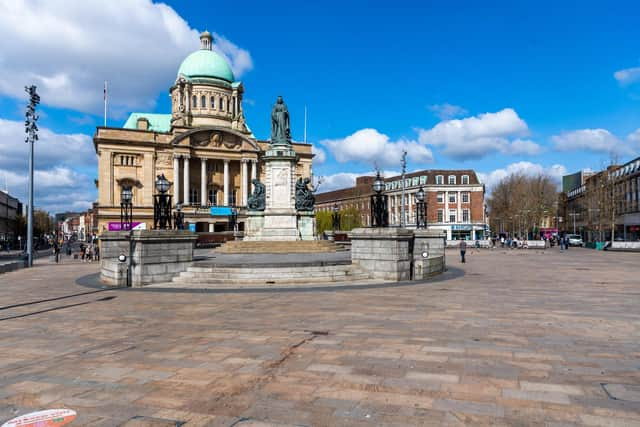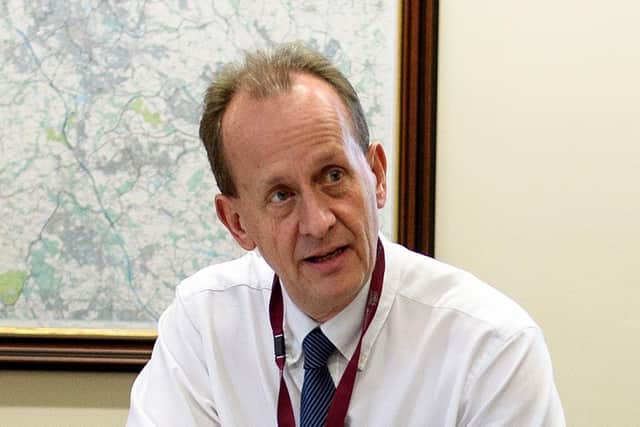Yorkshire's poorest councils 'get cuts three times as high as those in Surrey and Oxfordshire'
On average the top 10 per cent of poorest councils in England had a 28.3 per cent cut in funding between 2010/11 and 2023/24, against an average 10.1 per cent cut for the best off councils, research by the Special Interest Group of Municipal Authorities (SIGOMA) revealed.
Bradford and Hull - which are among the most deprived councils in the country – had cuts of 28.5 per cent and 27.9 per cent respectively, with Sheffield on -27.2 per cent and Doncaster -25.8 per cent.
Advertisement
Hide AdAdvertisement
Hide AdMeanwhile councils in the top 10 least deprived include Surrey with an 8.3 per cent cut , Rutland 8.4 per cent cut and Oxfordshire (-9.4 per cent).


Barnsley council leader Sir Steve Houghton, who chairs SIGOMA, is calling for changes to the way councils are funded as “the gap between the rich and the poor is getting wider”.
Whereas all business rates used to go into a central pot which was then distributed on the basis of need, now councils with growing economies do better as they are allowed to retain half of any business rate growth, such as from a new factory.
Government funding represented over 55 per cent of council’s core spending power in 2013-14, but 13 years later this has fallen to just 37 per cent.
Advertisement
Hide AdAdvertisement
Hide AdFunding from local revenue - such as council tax paid by local ratepayers plugs the gap, rising to more than 62 per cent now, compared to 45 per cent in 2013.


But “if you live in Hull or Barnsley and everyone is in a Band A house you don’t raise much council tax,” said Sir Steve.
He said the government had reneged on a promise to reset the business rate system back to zero and put all the funds back into the general pot. “Approximately £4bn would have been reallocated,” he said.
"We asked for the system to be reset and for the money to go back. The government at this point in time have said no.
Advertisement
Hide AdAdvertisement
Hide Ad"It looks like a political decision to support areas that are better off as opposed to areas that are worse off.
"In terms of levelling up it’s exactly the opposite, it’s levelling poor areas down as they are not getting the funding they would have done.
"What we have seen is we are getting less out of the system as our growth isn’t as high as more prosperous areas.”
Coun Houghton said if Labour does win the next election they will need to do the “necessary reforms”.
Advertisement
Hide AdAdvertisement
Hide AdHe said: “What I don’t want is a Labour government saying leave it alone...If it is Conservative again they need to uphold their promise.”
Leader of Hull Council Mike Ross said there was a consensus that the system needed an overhaul – but that wouldn’t happen with a government that was “the fag end of an administration and on its way out”.
He said: “I put it down to a Conservative government which isn't serious about a levelling up agenda and as a result will be leaving communities like Hull that can worst afford to receive this sort of treatment.”
The government couldn’t provide a response because of the pre-election period, formerly known as purdah.
Advertisement
Hide AdAdvertisement
Hide AdEarlier this year the Department for Levelling Up, Housing and Communities said councils across England would get an additional £5.1bn – an increase of 9.4 per cent on last year – bringing the total to almost £60bn.
They said the final settlement for local government “ensures the most relatively deprived areas of England receive 17 per cent more funding per household than the least deprived”.
